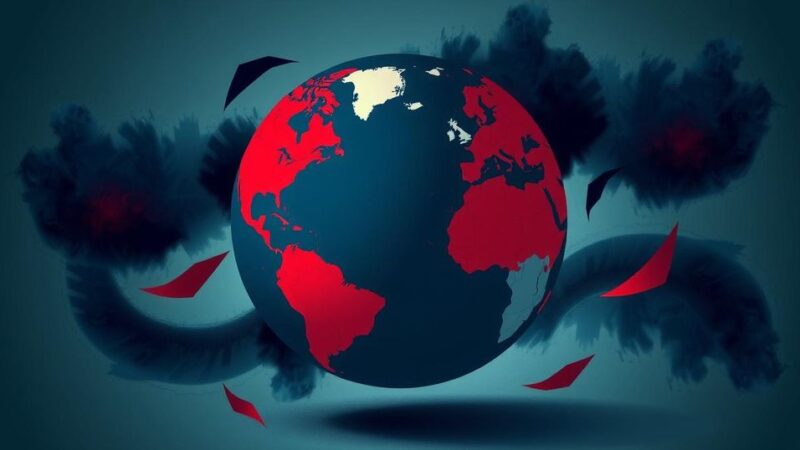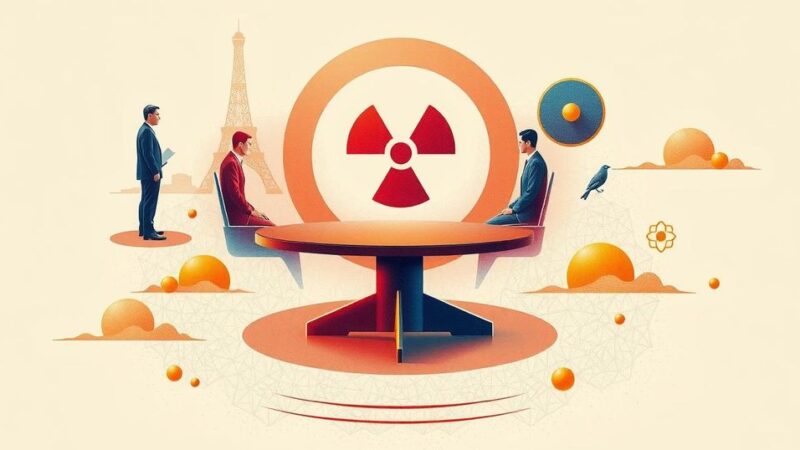India has played a crucial role in the UK’s decision to hand sovereignty over the Chagos Islands to Mauritius, supporting decolonization and encouraging negotiations. This agreement follows international legal pressures faced by the UK regarding its control over the islands, which hold strategic military significance. The resolution is seen as advantageous for all parties involved and may enhance regional security.
India has played a pivotal yet understated role in the United Kingdom’s recent decision to transfer sovereignty of the Chagos Islands to Mauritius. According to informed sources, India has steadfastly supported the elimination of remnants of colonial rule, which aligns with its broader stance on decolonization. Notably, India’s contributions to this resolution were acknowledged in a joint statement issued by the UK and Mauritius, which explicitly mentioned: “In reaching today’s political agreement, we have enjoyed the full support and assistance of our close partners, the United States of America and the Republic of India.” Furthermore, sources indicate that India has actively encouraged both parties to engage in open negotiations aimed at achieving mutually advantageous outcomes. The consensus surrounding the resolution is viewed as advantageous for all parties involved, potentially enhancing long-term security in the Indian Ocean region. New Delhi has consistently advocated for Mauritius’s claim over the Chagos Islands, asserting its unwavering commitment to decolonization and respecting the sovereignty and territorial integrity of nations, underpinning its historically strong partnership with Mauritius. The United Kingdom has faced significant pressure over the years to relinquish control of the Chagos Islands. In February 2019, the International Court of Justice ruled that British governance over the islands was unlawful, leading to an overwhelming resolution from the United Nations three months later, insisting that the UK cede sovereignty of the islands. Despite this, the UK maintained its position, citing the Diego Garcia military base as a strategic asset for US operations across the Indian Ocean and the Gulf regions. The recent political agreement, reached following two years of respectful negotiations as equal sovereign states, is contingent upon finalizing a treaty and supporting legal instruments, which both nations have committed to completing swiftly. In recent years, India has intensified its focus on its maritime strategy in the Indian Ocean, primarily to counterbalance China’s increasing influence. This strategy includes a particular emphasis on Mauritius, regarded as a crucial player in the southwestern Indian Ocean and a strategic gateway to the Atlantic Ocean. Moreover, India is strengthening relationships with other nations at key maritime junctures, including the Persian Gulf, the Malacca Strait, and southern Africa, while expanding partnerships with Madagascar, Mozambique, and Seychelles.
The Chagos Islands, located in the Indian Ocean, have been a focal point of international legal disputes primarily due to their colonial past. The UK had administered these islands for decades, which came under scrutiny as advocates for decolonization highlighted the rights of Mauritius. In 2019, the International Court of Justice ruled that British control was illegal, prompting the United Nations to call for the UK to cede sovereignty. The islands hold strategic military importance, particularly due to the presence of the Diego Garcia base, which the US utilizes for operations in the region. India’s involvement in supporting Mauritius and encouraging dialogue reflects its broader geopolitical strategy in the Indian Ocean, particularly in light of China’s growing influence.
In summary, India’s discreet but significant influence in the negotiation process for the Chagos Islands’ sovereignty transfer underscores its commitment to supporting decolonization and fostering regional stability in the Indian Ocean. This political agreement, although still awaiting the finalization of legal frameworks, signifies a critical step toward rectifying historical injustices and enhancing cooperation among nations. India’s active role reinforces its strategic objectives in the region amidst evolving global dynamics.
Original Source: www.ndtv.com






